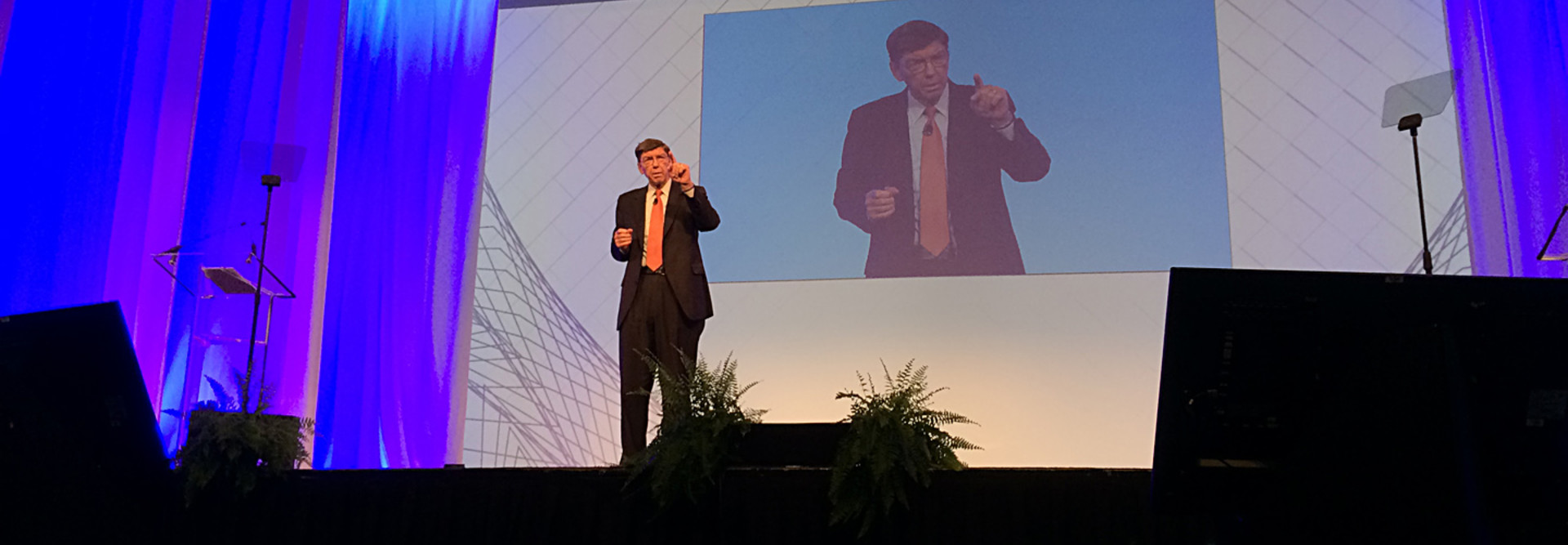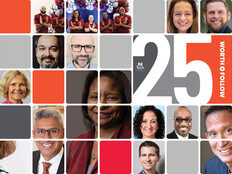EDUCAUSE 2014: Online Learning Could Fundamentally Change Role of Universities
Higher education institutions are poised for a massive shake-up, not unlike what tech companies experienced in the 1980s during the rise of the PC, said EDUCAUSE's first general session speaker.
Clayton Christensen, the Kim B. Clark Professor of Business Administration at Harvard Business School, led EDUCAUSE 2014's first general session on Tuesday. Christensen made a name for himself with his theory of disruptive innovation, which seeks to explain how a product or service operating on the fringe of a market rises from the bottom by addressing needs not being met by traditional services.
As examples, Christensen cited automotive industry changes spurred by innovations in electric and hybrid cars, the transition from mainframe computing to PCs and the piecemeal absorption of Dell's PC market by ASUS.
"Disruption is always a great opportunity before it becomes a threat," he said.
Higher education is in the midst of a similar transition stemming from the growth of online course options, Christensen said. He called this disruption one of America’s most important problems.
"In the future, I don't think universities themselves will be nearly as prominent as they have been in the past," he said.
Instead of merely conferring degrees, universities are increasingly offering alternative certifications and accreditations for students seeking a more narrowly focused education. The growth of online learning options plays directly into that, Christensen said, and as this process becomes standardized, it could quickly change the university’s role.
Online higher education institutions are growing, offering a modular educational experience with an open architecture, he said — and “when it becomes modular, then anybody can declare themselves a university."
Christensen closed with an anecdote recounting how the University of Phoenix had arranged for him to give a lecture series that was later edited for online distribution. He said he'd never seen himself speak before, and joked that upon viewing the video, the effect was "magical" — the result of music and camera work that turned an otherwise standard lecture into an almost cinematic experience.
The presentation was later shown to more than 130,000 of the university's online students, which floored Christensen, who said he thought Harvard's class of about 900 students was large.
"I realized then, my gosh, even the best universities are really facing an important consumption by people who can assemble a lot of scale," he said.
EdTech is providing constant coverage of EDUCAUSE 2014, including video interviews, session information and tons of photos. Keep up-to-date on all of our coverage by visiting our EDUCAUSE 2014 conference page.









